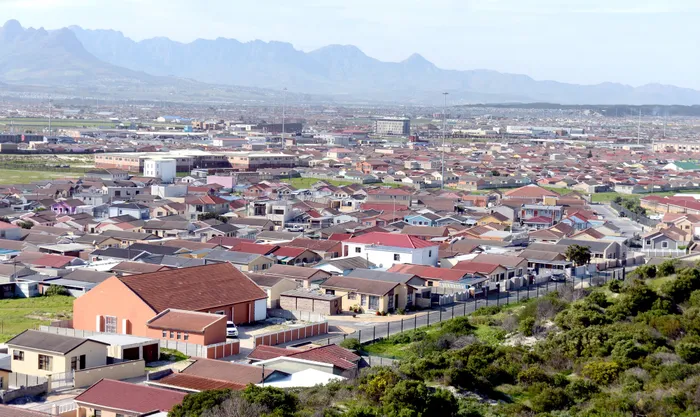
Property demand hotspots expected to accelerate in the first quarter of next year due to the latest interest rate cut.
Image: Ayanda Ndamane/ African News Agency (ANA)
South Africa’s property market and the broader economy should both take advantage of lower borrowing costs to accelerate investment and activity.
On Thursday, the MPC decided to reduce the policy rate by 25 basis points to 6.75%. The decision was said to be unanimous, with members agreeing there was scope now to make the policy stance less restrictive, in the context of an improved inflation outlook.
Support for growth
The 25 basis points rate cut came sooner than expected, signalling a proactive stance by the South African Reserve Bank’s Monetary Policy Committee (SARB MPC) to support growth amid easing fiscal and inflationary pressures, says Siphamandla Mkhwanazi, a senior economist at FNB.
He says this move reflects confidence in the inflation trajectory and a desire to stimulate economic activity earlier than anticipated.
For the property sector, Mkhwanazi says this means unlocking stalled projects and improving affordability for buyers. He says the earlier interest rate cut should also encourage banks to lend more readily.
For the broader economy, he says the focus should be on boosting consumer confidence and increasing capital expenditure to benefit from improved liquidity.
Mkhwanazi says the property market is likely to close the year on a stronger footing, with improved sentiment and higher transaction volumes. “Early next year, momentum should continue as affordability improves and developers respond to renewed demand, particularly in segments where supply remains severely constrained.”
Given this early cut, the FNB senior economist says the SARB may adopt a wait‑and‑see approach in January, assessing inflation trends and global conditions before considering further easing.
He says another cut is possible but less likely unless data strongly supports it, for example, if inflation expectations improve materially or if inflation surprises to the downside.
The November 25 basis points interest rate cut comes at the right time, when economic activity slows down from the middle of December to January because of the festive season, says Dr Farai Nyika, an academic programme leader at the Management College of Southern Africa's School of Public Administration (MANCOSA).
He says this rate cut will certainly boost retail spending over the coming months.
Immediate debt relief
He says the property sector and broader economy will get immediate debt relief, and for those who are highly leveraged, their advice would be that they should spend cautiously over the festive period and use the rate cut as an opportunity to pay a bit extra toward mortgage and debts.
“Interest rate cuts leave us with more disposable income, and lenders adjust outstanding balances accordingly. In addition, prospective property owners may find it harder to negotiate purchase prices in a downward rate cycle, as this tends to increase demand.”
However, Nyika adds there are other options to acquire properties that are less utilised by the public, such as in bank auctions, though high caution and due diligence are advised if one opts for this route, as there are no guarantees that repossessed properties will be vacant when a sale is finalised.
Property sector slowdown
The academic says South Africa’s property sector slows down at this time of the year. However, he says the slowdown is an opportunity for prospective owners to do more research in understanding price trends in their desired locations.
“It is also an opportunity to reassess one’s property needs, as we anticipate property demand hotspots to accelerate in the first quarter of 2026 due to this latest rate cut.”
The academic speculates a pause in rate cuts in the next MPC meeting next year, adding that the SARB may want to see how the economy is responding to the recent rate cut announcement, and to other cuts that occurred this year.
“There may be some upside risks to inflation that warrant a pause in rate cuts, as the SARB works toward a tighter inflation target,” Nyika says.
Although not a large drop in and of itself, the interest rate cut will continue to compound the advances that have accrued since the Reserve Bank began cutting interest rates in September 2024, says Greg Dart, the co-director at High Street Auction.
“With cuts now reaching the 150-basis point mark, l believe that this could continue to have a positive impact on the entire property sector.”
Independent Media Property
Related Topics: